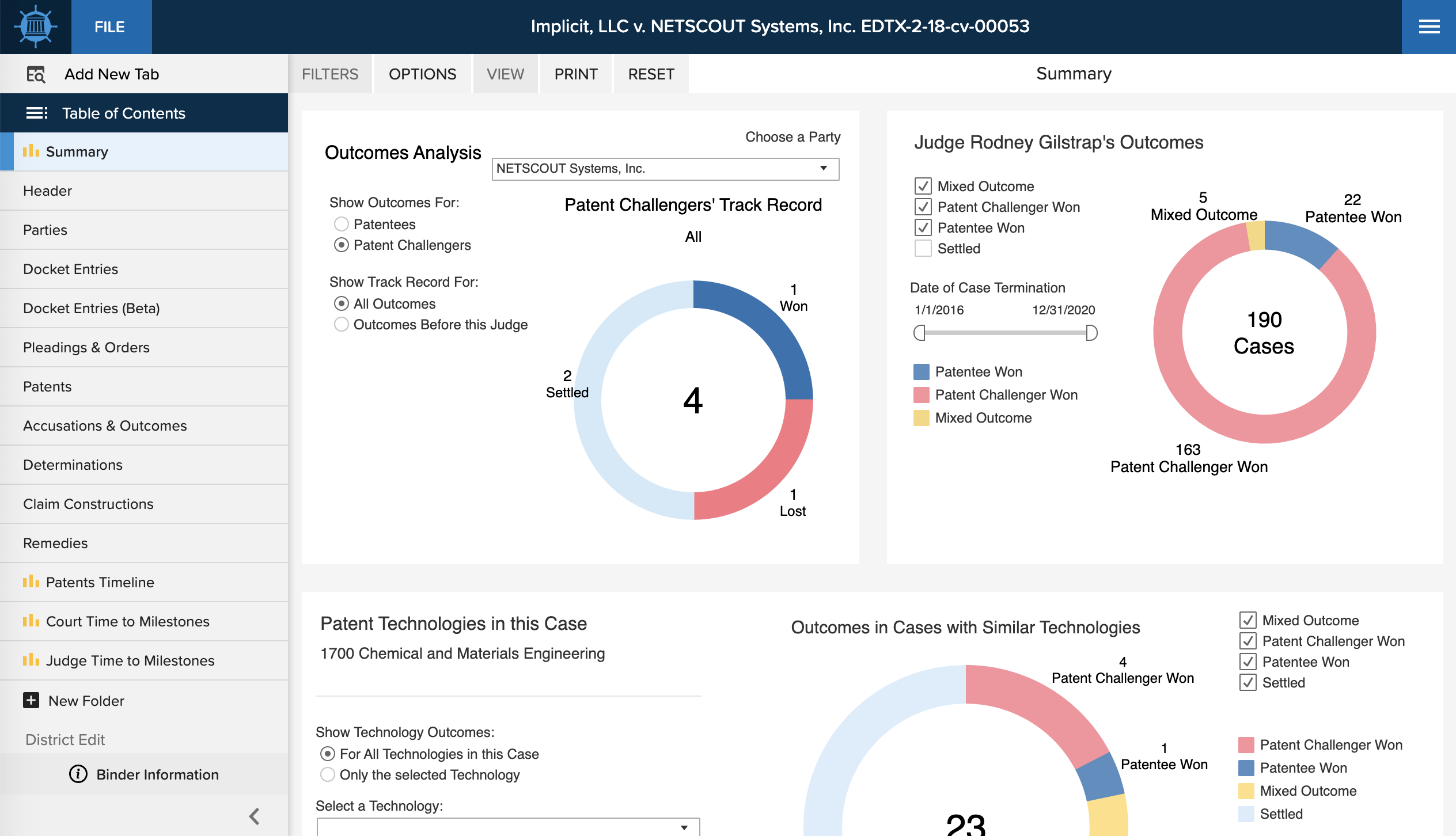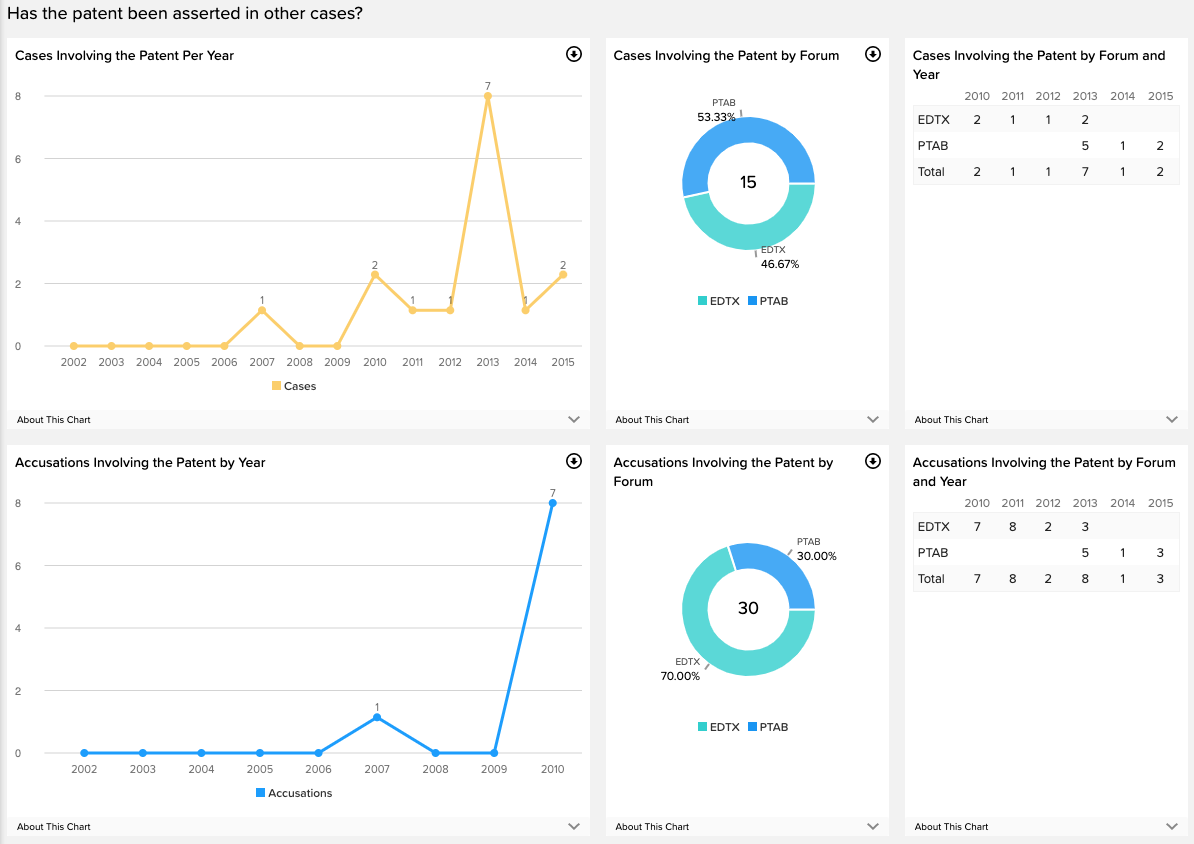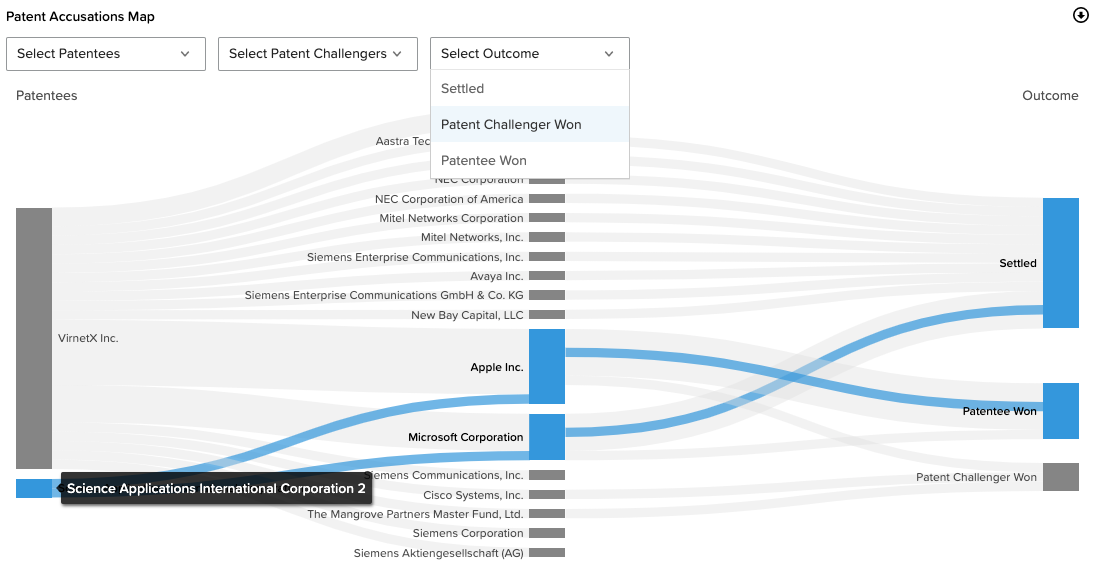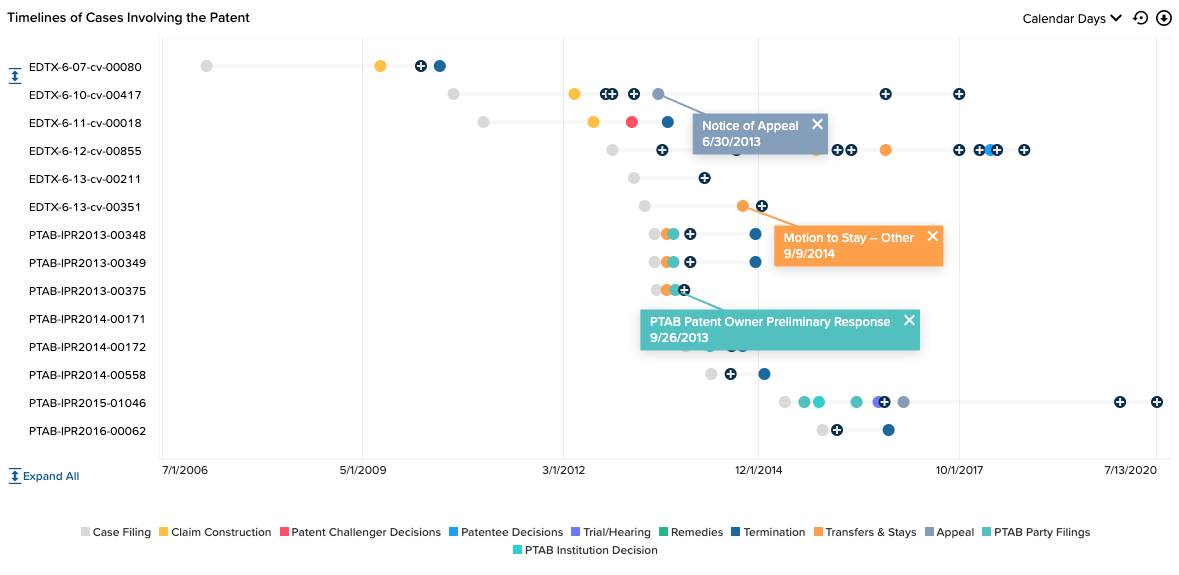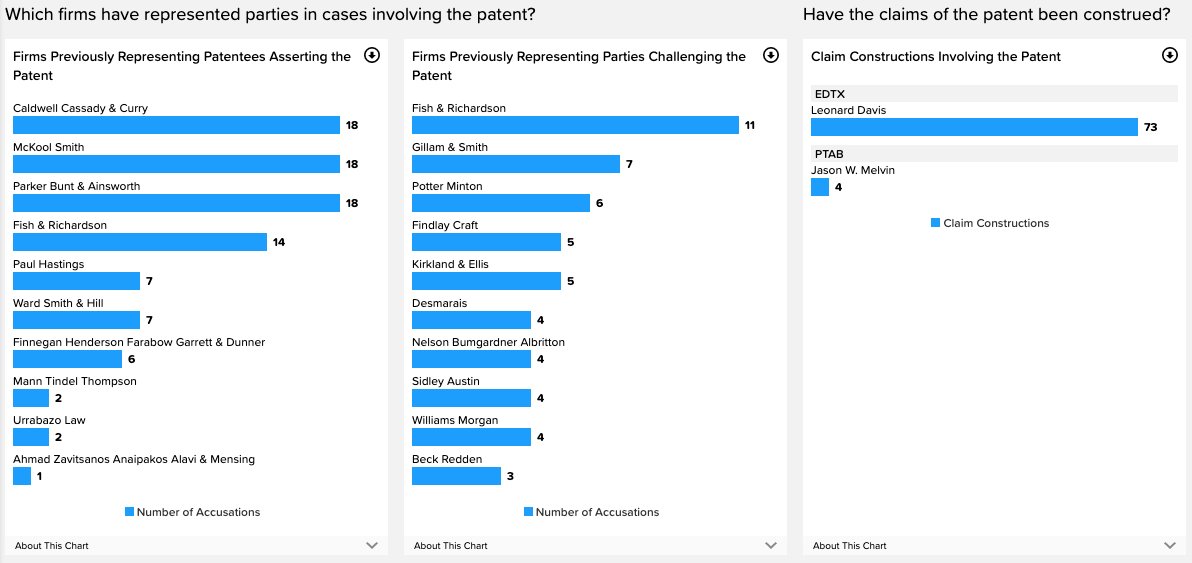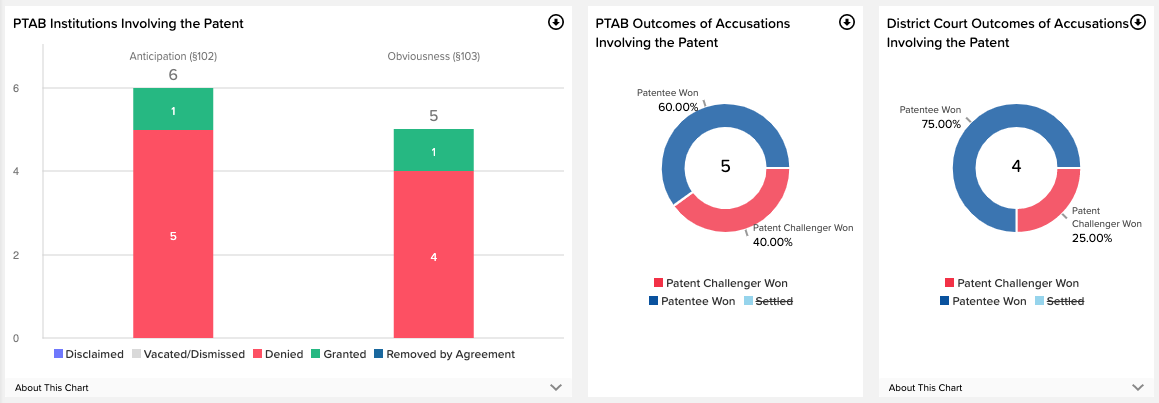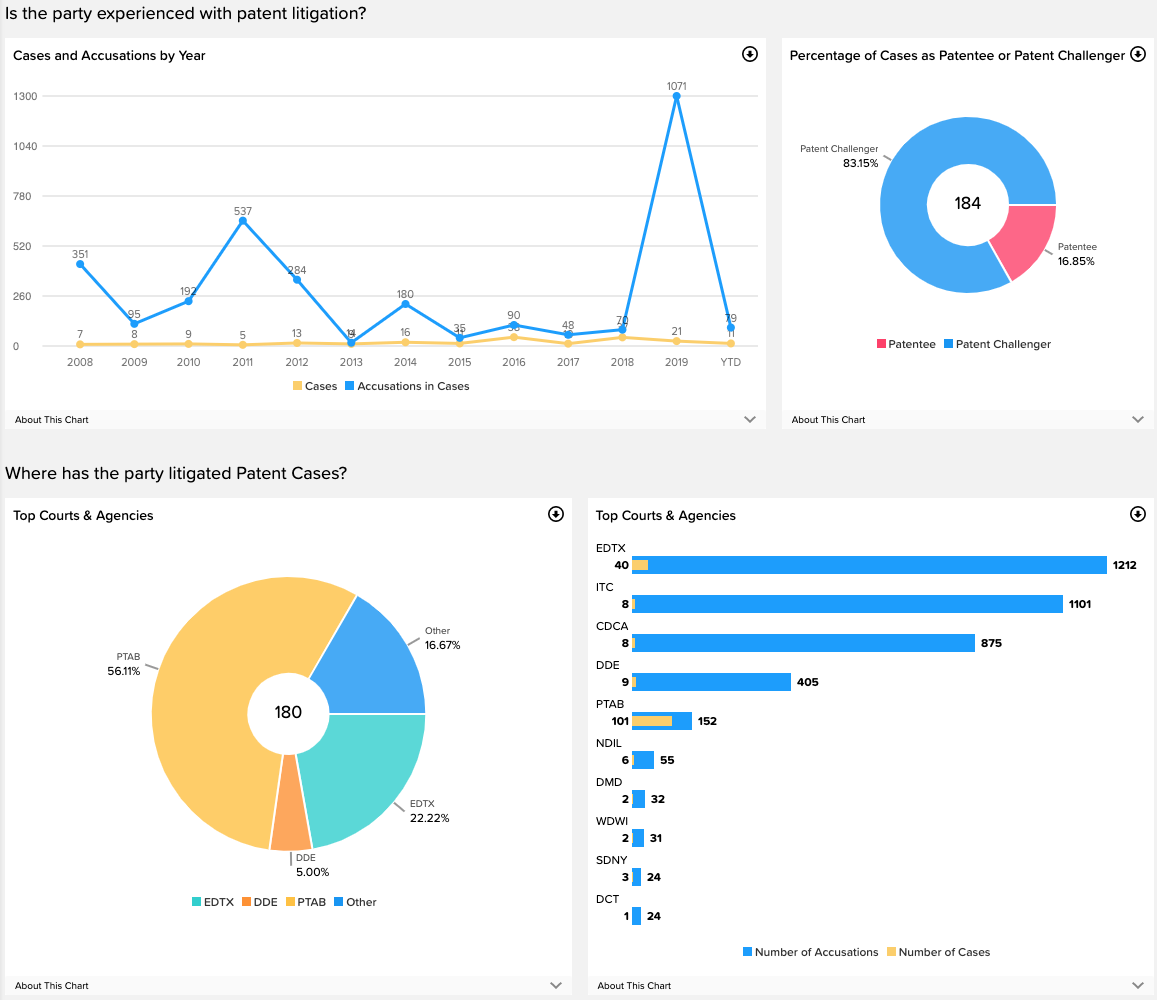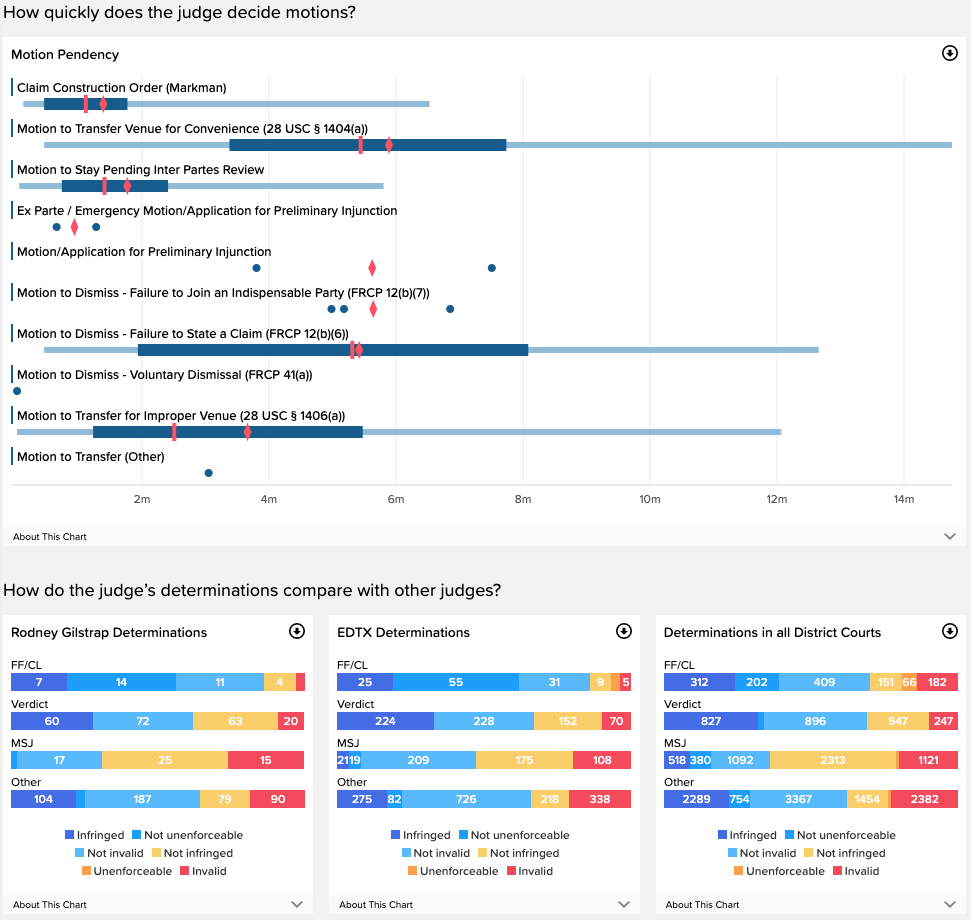LITIGATION STRATEGY
“Litigation is a roll of the dice in many respects. Parties do not know what facts will come out in discovery, how a judge will rule, or how a jury will see their case. And, like any gamble, parties are wise to hedge their bets to reduce uncertainty.”
— Hon. Joshua D. Wolson
Midwest Athletics and Sports Alliance LLC v. Ricoh USA, Inc., 2-19-cv-00514 (E.D. Pa. May, 12, 2021).
CASE PROFILES
One-click access to get up-to-speed quickly.
Case Profiles provide everything you need to know about a new case.
- Is the judge experienced in patent litigation?
- Do the judge’s decisions tend to favor one side or the other?
- Which law firms have the defendants retained in the past?
- Who are the plaintiffs and what is their track record?
- Are the plaintiff’s law firms experienced?
- How quickly will the judge reach critical milestones like claim construction, summary judgment, and trial?
PATENT PROFILES
Litigation history of the asserted patents.
For patent cases, Patent Profiles provide a deep dive into the litigation history of a patent.
- Has the patent been involved in past litigation?
- If so, what were the outcomes of those cases?
- Has the patent been determined infringed, invalid, or unenforceable?
- Is the patent vulnerable to an invalidity challenge?
PARTY PROFILES
Intelligence on your opponent.
Quickly get up to speed on your opponent(s) with a Party Profile.
- Is your opponent experienced in patent litigation?
- If so, what was the outcome in those cases?
- Which firms have represented your opponent in patent cases?
- Which patents have been asserted by and against your opponent?
JUDGE PROFILES
Insight into your judge’s decision-making.
It’s important to know your audience. Access in-depth information about your judge with the Judge Profile.
- Is your judge experienced in patent litigation?
- How quickly does your judge’s cases reach important milestones like claim construction, summary judgment and trial?
- How quickly does your judge decide motions?
- How has your judge decided specific types of motions?
- Which claim terms has your judge construed and what constructions were applied?
- Which patents has your judge determined to be invalid, not invalid, infringed, not infringed, enforceable and not unenforceable?
- What types of remedies has your judge awarded in patent cases?
